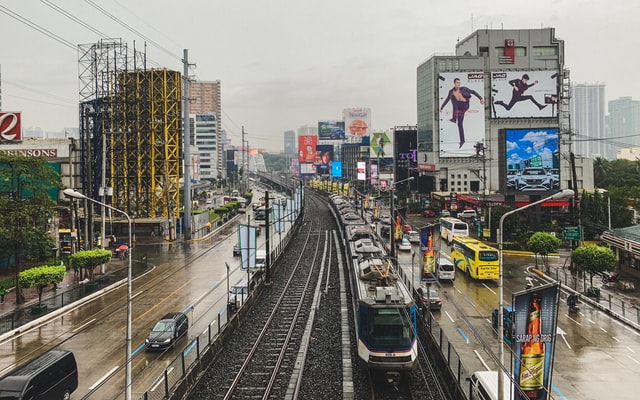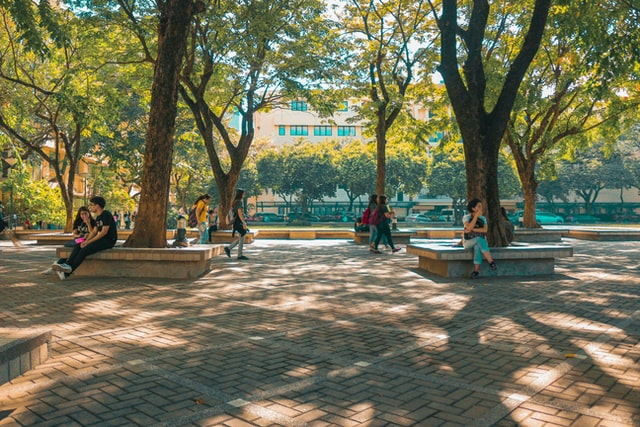Starting a business in the Philippines can be daunting, even more so nowadays because of the country’s ever-changing lockdown restrictions and the 9.6% contraction in its annual GDP in 2020. With the country’s capital region and its neighboring provinces (collectively known as “NCR Plus”) slowly easing out of General Community Quarantine (GCQ) rules, the pressure felt by the country’s businesses—of which 99% are in the MSME category—to rebuild and regrow the economy is mounting.
In May 2020 YCP Solidiance released an article titled “Opportunities in the Philippines’ Key Growing Sectors Despite COVID-19 Pandemic,” which highlighted several key growth industries projected to catapult the country out of its economic slump. One year later, two of these sectors—financial services and transport services—are not only showing steady growth, but have been instrumental in aiding local businesses to continue operations and eventually, help the country bounce back fiscally. 
An Increase in Fintech Users
The fintech segment of the country’s financial services industry is reporting an undeniable boom. The Philippine Daily Inquirer reports a surge in the number of Filipinos using digital payment methods in 2020—an increase of 5,000%.
In early June GCash, the country’s leading mobile payment app, reported that it has passed the 40-million subscriber mark, with one in every three Filipinos having a GCash account. The demand for digital payment methods has been rampant since the country’s first lockdown in March 2020, when majority of the country’s middle class turned to cashless methods to avoid COVID-19. GCash and contemporaries like PayMaya, DragonPay, and GrabPay are popular not only with e-commerce players like Lazada and Shopee, but even with traditional brick-and-mortar restaurants and retail establishments that have pivoted to online operations.
The rise of digital payment methods has led Bangko Sentral ng Pilipinas (BSP) chief Benjamin Diokno to project a national transition from cash-heavy to a cash-light environment by 2025. Other fintech segments are also gaining traction—Business World reports that 69% of all fintech app installs in 2020 were of digital banking platforms, leading the BSP to issue new guidelines on digital banking as players from India and Singapore enter this emerging market. 
Partnerships with Delivery Services
When the national government announced Enhanced Community Quarantine (ECQ) restrictions last March 2020, delivery services were categorized as “essential” to keep goods and services moving. Both consumers and businesses relied on these services—helmed by colloquially named “riders”—to transport food orders, e-commerce purchases, even government documents and medical supplies.
A year later, the Filipino public’s reliance on these services has not waned. In fact, delivery services providers are expanding their fleets and are now entering into beneficial partnerships with conglomerates and industry players to strengthen operations and expand their services:
- Grab Philippines, the local outpost of the Asian ride-hailing service, has entered a deal with the Food Safety and Hygiene Academy of the Philippines (FoodSHAP) to promote better food handling standards. Its in-house food delivery platform, GrabFood, is one of its most popular services.
- Angkas, a local ride-hailing app for motorcycles, has pivoted to include delivery services in its roster and is now an official partner of the Philippine Red Cross in ensuring safe transport of first aid paraphernalia, blood donations, and medical items.
- Toktok, an online courier service and one of the newest players in the segment, has partnered with local conglomerate Robinsons Malls to provide grocery shopping and delivery services.
The steady rise of these two segments not only help improve the outlook of the local economy, but also add to the quality of life for Filipinos by allowing them access to goods and services from the safety of their homes. Business owners limited by the pandemic are also able to continue daily operations and even branch out to new ventures, hopefully resulting in an overall boost to the gridlocked Philippine economy.
For more Asia-focused insights like this one, subscribe to our newsletter here.







